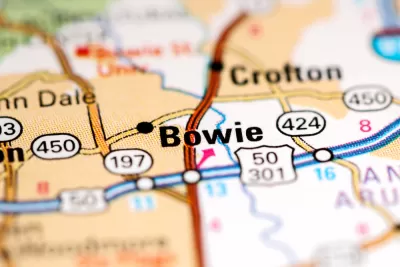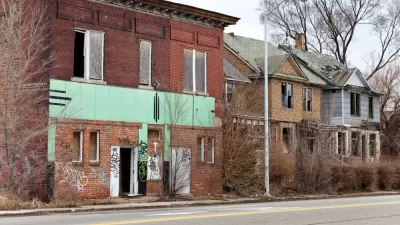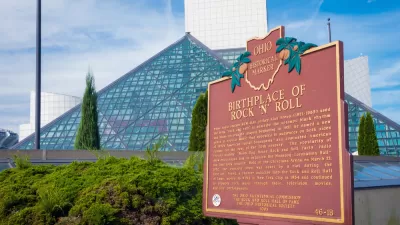The Economic Innovation Group has released its 2020 Distressed Communities Index.

"A shocking 70% of the nation’s 1,036 majority-Black ZIP codes are considered 'distressed,' while only 19 — 1.8% — rank as 'prosperous,'" according to an article by Andy Olin.
Olin cites the most recent Distressed Communities Index (DCI) from the Economic Innovation Group (EIG), in addition to focusing on the fact that two of the prosperous zip codes are located in Fort Bend County, Texas.
"Distressed communities are characterized by widespread poverty, high rates of unemployment and low levels of educational attainment. They also face stagnant or negative economic growth, which means little to no change in the prospects of those who live there," according to Olin's explanation.
"The seven metrics used to calculate a community’s score on the index were no high school diploma, housing vacancy rate, adults not working, poverty rate, median income ratio, change in employment and change in business establishments." Four out of the five most prosperous majority-Black ZIP codes in the country are located in Maryland, according to these metrics.
In total, the report estimates that 50.5 million Americans live in distressed zip codes, compared to 50 million in 2016. The report makes the case that the gap between prosperous and distressed grew in the United States over the course of the past decade, but despite the high ratio of distressed majority-Black ZIP codes, the share of the U.S. Black population living in distressed zip codes dropped between 2010 and 2018, according to the report.
FULL STORY: There are only 19 prosperous majority-Black ZIP codes in the US. The Houston area is home to two

Planetizen Federal Action Tracker
A weekly monitor of how Trump’s orders and actions are impacting planners and planning in America.

Restaurant Patios Were a Pandemic Win — Why Were They so Hard to Keep?
Social distancing requirements and changes in travel patterns prompted cities to pilot new uses for street and sidewalk space. Then it got complicated.

Map: Where Senate Republicans Want to Sell Your Public Lands
For public land advocates, the Senate Republicans’ proposal to sell millions of acres of public land in the West is “the biggest fight of their careers.”

Maui's Vacation Rental Debate Turns Ugly
Verbal attacks, misinformation campaigns and fistfights plague a high-stakes debate to convert thousands of vacation rentals into long-term housing.

San Francisco Suspends Traffic Calming Amidst Record Deaths
Citing “a challenging fiscal landscape,” the city will cease the program on the heels of 42 traffic deaths, including 24 pedestrians.

California Homeless Arrests, Citations Spike After Ruling
An investigation reveals that anti-homeless actions increased up to 500% after Grants Pass v. Johnson — even in cities claiming no policy change.
Urban Design for Planners 1: Software Tools
This six-course series explores essential urban design concepts using open source software and equips planners with the tools they need to participate fully in the urban design process.
Planning for Universal Design
Learn the tools for implementing Universal Design in planning regulations.
Heyer Gruel & Associates PA
JM Goldson LLC
Custer County Colorado
City of Camden Redevelopment Agency
City of Astoria
Transportation Research & Education Center (TREC) at Portland State University
Camden Redevelopment Agency
City of Claremont
Municipality of Princeton (NJ)





























